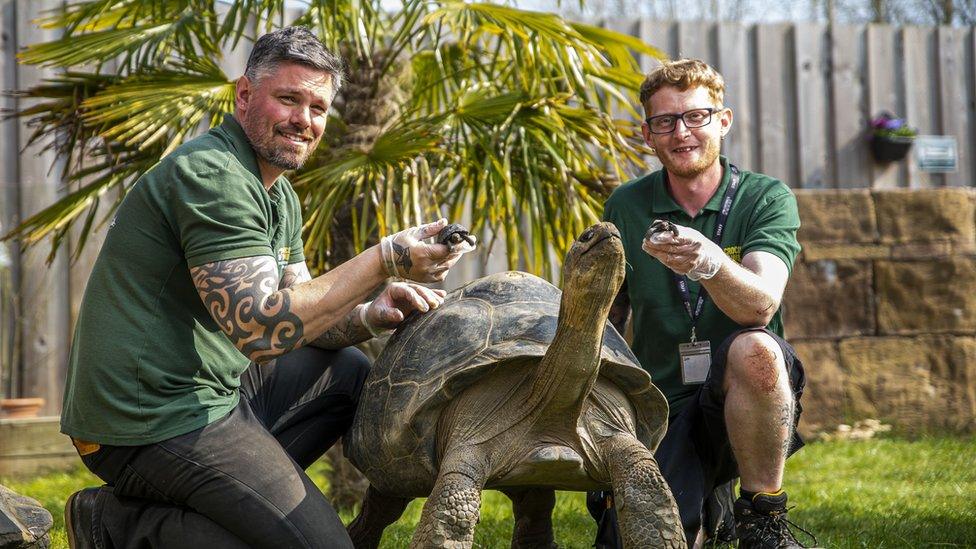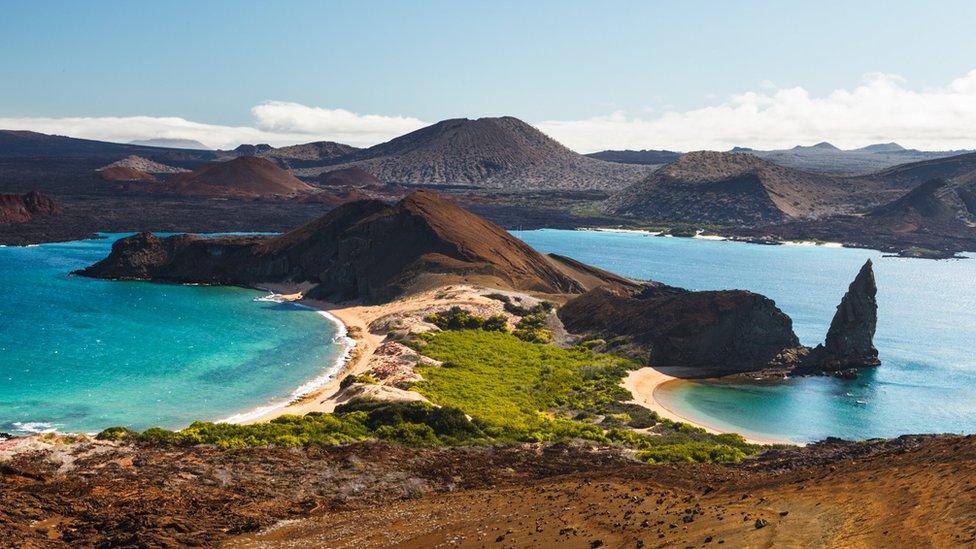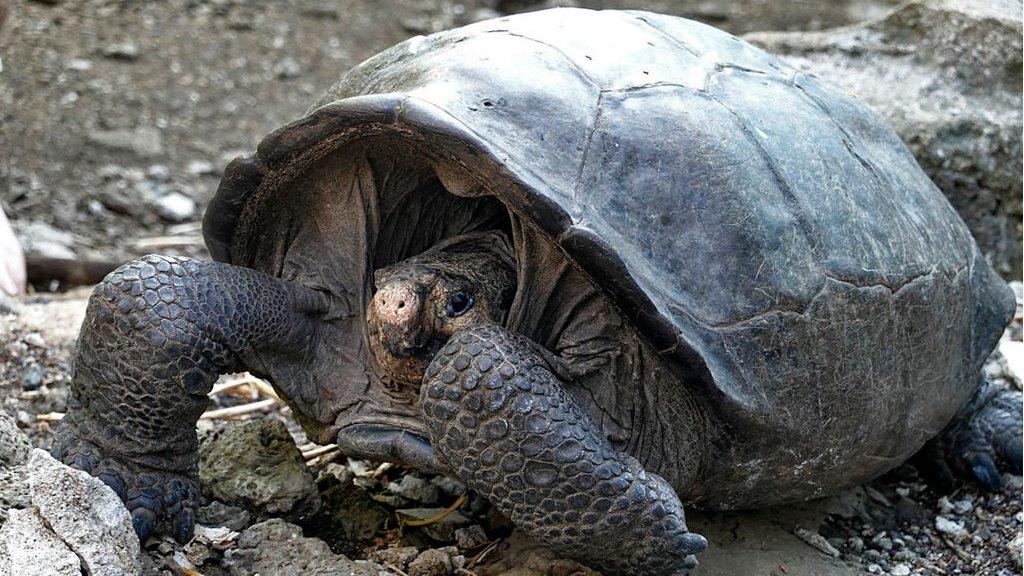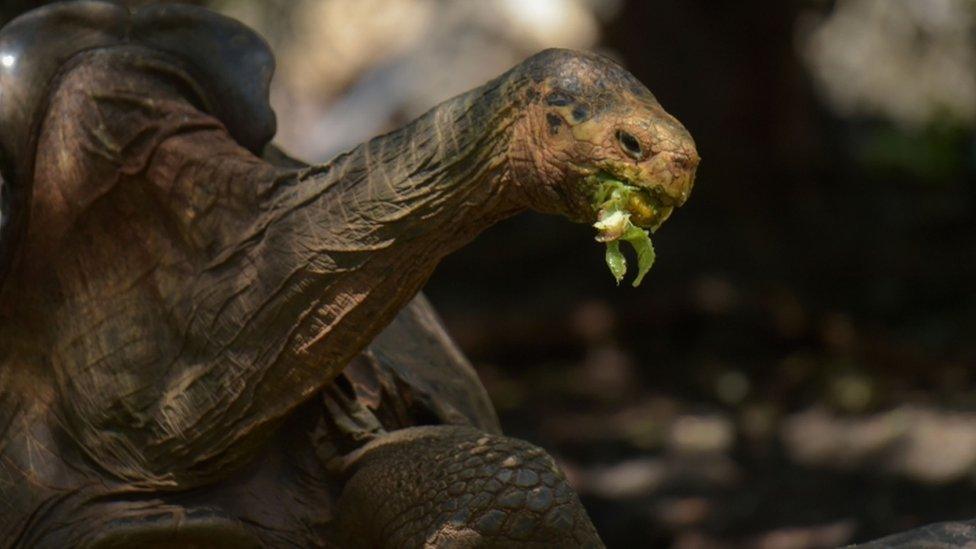First giant Galapagos tortoises born at Crocodiles of the World
- Published
Despite being over 70 years old, Dirk has become a father of two
Giant Galapagos tortoises have been successfully bred in a British zoo for the first time.
The two newborns were fathered by 70-year-old Dirk, who first arrived in the UK in the 1960s and is described as being in "peak physical condition".
He bred with mother Charlie, 21, in November at Crocodiles of the World in Brize Norton, Oxfordshire.
Their offspring are currently about the size of tennis balls, but will grow to weigh about 30 stone (190kg) as adults.
Giant Galapagos tortoises have a lifespan of more than 100 years and are synonymous with Charles Darwin, who pioneered the theory of evolution by studying them.
Crocodiles of the World has four adults - three females called Zuzu, Isabella and Charlie and Dirk, who is named after lothario Dirk Diggler from the movie Boogie Nights.

Shaun Foggett (left), the founder of Crocodiles of the World, with Dirk, the new arrivals and Jamie Gilks, the attraction's head of reptiles
Giant Galapagos tortoises are listed as endangered on the International Union for Conservation of Nature's Red List.
There are about 15,000 of them in the world, compared to 200,000 in the 19th Century.
Shaun Foggett, founder of Crocodiles of the World, said: "We're incredibly proud to have successfully bred these tortoises, who have previously been very close to extinction.
"They are still facing an uncertain future, primarily due to historic over-exploitation and egg predation from invasive species.
"We have all been hoping for this day since the giant tortoises joined us in 2018 and it's a significant achievement towards helping the conservation of the species."

Dirk first arrived in the UK in 1962 after being taken from the wild in the Galapagos Islands
Keepers are closely monitoring the tortoises' progress and feed them a diet of dried grasses, leafy greens, pear cactus and weeds.
He first arrived in the UK from the wild on the Galapagos Islands in 1962.
While the four reptiles regularly mate, it is very difficult for females to lay fertile eggs.
When Charlie laid the two eggs, they were placed in an incubator for four months. They both hatched earlier this month.

Follow BBC South on Facebook, external, Twitter, external, or Instagram, external. Send your story ideas to south.newsonline@bbc.co.uk, external.
- Published26 May 2021

- Published16 June 2020

- Published9 January 2012
.jpg)